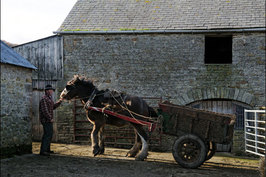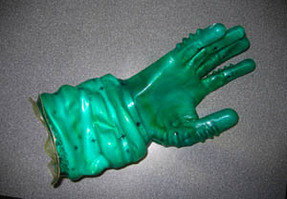 As I work on From the Charred Remains, the second book in my Lucy Campion series, I keep getting plagued by this question: How long would it take a horse and carriage to travel from London to Oxford in the mid-seventeenth century? Check out my post at the Bloody Good Read on this topic! Let me know what you think!
17 Comments
 the gauntlet has been thrown I've been in Brownsville Texas doing some talks, so I didn't notice right away that Jaynes had thrown down a gauntlet. I had written about how writers might choose to describe scenery. Or, they could instead have their characters interact with scenery as they would another character. So just for fun I dashed off my first and only attempt at science fiction. (I write mysteries, remember!!!). So Jaynes wrote: "I would be amused if everyone took a shot at a paragraph describing what happened next with the pebble. I think I sense some other writers responding on this blog. We could see how we measure up to your talent...Little friendly competition..." DONE! GAUNTLET ACCEPTED! I've given you the prompt--now you can write the next paragraph. Tell us what those "pebbles" really are! "As Larry stepped cautiously down from his craft, his boot sunk a little deeper down into Gale Crater than he had expected. What he had thought would be thickly-layered bedrock was actually more sponge-like in its composition. This was not the first time the Motherland's Minister of Science had been wrong about a planet. He kicked one of the many brown pebbles strewn across the landscape. "It's going to take me forever to get to Mount Sharp," he muttered to himself. "Why'd the General tell me to land here? The mountain's at least three kilometers to the north." He checked the temperature gauge on his suit. 46 degrees. "Geez, it's dropped at least 10 degrees since I landed." Out of the corner of his eye, he saw one of the pebbles move. "Uh, oh." He groaned. "That's no pebble!" Well...if it's not a pebble...what the heck is it? You tell me!  Interacting with Mars The other day a faculty member who teaches college science courses shared with me an innovative method he uses to enhance critical and creative thinking in his students. Instead of having his students complete more traditional reports on scientific principles and concepts, he has them create science fiction stories, drawing on those same scientific ideas. (Boy would I have loved science if my professors had asked me to do that!). As we talked, we discussed the necessity of not just asking students to sprinkle scientific details through their stories, but rather the importance of having their characters engage with those details. This would add to the scientific authenticity. More importantly, I think they contribute to the overall richness of the story. So, for example, a writer could just passively describe Mars: "The floor of the Gale Crater was grayish-blue in color. Brown and gray pebbles were strewn everywhere. At the center of the crater was Mount Sharp. Without any sign of life, Larry thought it was definitely the perfect place to land the Motherland's craft." Or, the characters could actively engage with the Martian terrain--as they would engage with another character: "As Larry stepped cautiously down from his craft, his boot sunk a little deeper down into Gale Crater than he had expected. What he had thought would be thickly-layered bedrock was actually more sponge-like in its composition. This was not the first time the Motherland's Minister of Science had been wrong about a planet. He kicked one of the many brown pebbles strewn across the landscape. "It's going to take me forever to get to Mount Sharp," he muttered to himself. "Why'd the General tell me to land here? The mountain's at least three kilometers to the north." Shivering, he checked the temperature gauge on his suit. 66 degrees. "Geez, it's dropped at least 10 degrees since I landed." Out of the corner of his eye, he saw one of the pebbles move. "Uh, oh." He groaned. "That's no pebble!" Okay, there's a reason I don't write science fiction. But when I was first embarking on my novel-writing journey, I learned about the concept of treating description, scenery, weather, etc as another character. Details should be added to enhance the experience of a character. In A Murder at Rosamund's Gate, for example, I turned the ever-present London fog into a character--alternatively gentle and tempestuous in turns. Of course, this is a matter of taste. There are plenty of great books out there--especially some of my favorite nineteenth century novels--that have PAGES and PAGES of description without a bit of dialogue or action to break them up. But I admit, I probably skim long passages of description for the most part. How about you? Do you enjoy books with lots of scenic descriptions? Or do you prefer when characters engage with the scenery, as they would engage with another character?  The alpha reader wolf This weekend, I'll be working on the first set of suggestions for my second novel, From the Charred Remains, compliments of my alpha reader (a.k.a my dear husband Matt). Even though I sometimes gnash my teeth and grimace over his comments ("Who cares if I start three sentences in a row with "And"? "What do I care what color this character's eyes are?"), I think he gives really good comprehensive feedback. So I asked him to offer his insights into what it's like to make suggestions on a novel in progress. (Disclaimer--he says some nice things in here about me, which I really didn't make him say). ---------------------------------------------------------------------------------------------------------- I’ll never forget the moment that I finished reading the very first draft of A Murder at Rosamund’s Gate. After years of knowing next to nothing about the novel, suddenly all had been revealed. (So true, I never told him I was writing a novel. --SC) I remember feeling many emotions, with pride and awe being the most salient. I recall thinking, “Wow, this feels like a novel that people buy from Barnes & Noble! How did she create this vivid world and these vibrant characters? How did she develop this compelling mystery that kept me guessing until the end? How did she weave such interesting historical details into story? Just wow.” Then came feelings of satisfaction and contentment—“What a great ending”—and a yearning for more—“I miss Lucy already. I wonder what will happen in the next book?!?” After sharing these thoughts with Susie, she reminded me that the other duty of the alpha reader is to provide constructive feedback. I remember feeling ill-equipped for this task. “Who am I to give a critique? I’ve never written a novel and I doubt that I ever could. What can I offer that would be of any value?” During my careful rereads of various drafts, I learned that I could provide some valuable feedback (e.g. "Why would this character do that?" "I thought you said it was raining outside," or "You know you said this character was dead--what is he doing talking to Lucy?"). Susie subsequently rewarded me with a variety of titles: Vice President of Continuity Management, Head of Repetition Detection, and Director of Necessity Questioning. Although these titles are simply meant for fun, I take great pride in them and I am thrilled that Susie asked me to continue in these roles for book two: From the Charred Remains! Having recently read the first draft of FTCR, I found myself filled again with awe and pride—“How did she do it again?”—and a yearning for more—“When will book three be ready?!?” Can you relate to any of these experiences? Feelings of pride and awe in the accomplishment of someone close to you? The tough position of providing constructive feedback?  Today, I read an interesting article in the Chicago Tribune by John Warner--"The sting of a bad end." In it, Warner draws on the work by psychologist and Nobel Prize-winner Daniel Kahneman to probe the pain we feel as readers when a book (or worse, a series) we love ends badly. Paraphrasing Kahneman's theory, Warner writes "...we have 'two selves': our 'experiencing' self and our 'remembering' self. Our experiencing self is just that, the part of us that's present while something is occurring. In Kahneman's formulation, that's the one who would answer the question, 'How are you liking the book?' Our remembering self is the one who answers "How did you like the book?'" Apparently, our memory of an experience is tempered by our perception of how the experience ends. So we could love every moment of a book, but if we don't like the ending, then we forget we enjoyed reading the rest of the book. (This is all part of a complex decision-making process--take this fun quiz to learn more about how you make decisions!) As a reader, I can relate to this feeling of intense disappointment when a book doesn't end as I had hoped. A beautifully wrought story should end, well, beautifully. And if doesn't? Well, there's a strong chance I won't read it again (and I'm someone who rereads books frequently). (Of course, maybe I wasn't in the right moment in life to appreciate the ending, but that's another story.) Warner ends with a plea: "On behalf of authors everywhere, I'm hoping we can add a little perspective and ask everyone to tell their remembering selves to remember their experiencing self, because the truth is that writing a good and fully satisfying ending is really, really hard." I agree with this. Absolutely. Completely. But I think there's an answering plea from readers to writers. Don't rush the ending! Be true to your characters! Care about your readers! How about you? Do you judge a book by how it ends? |
Susanna CalkinsHistorian. Mystery writer. Researcher. Teacher. Occasional blogger. Categories
All
Archives
May 2023
|
 RSS Feed
RSS Feed